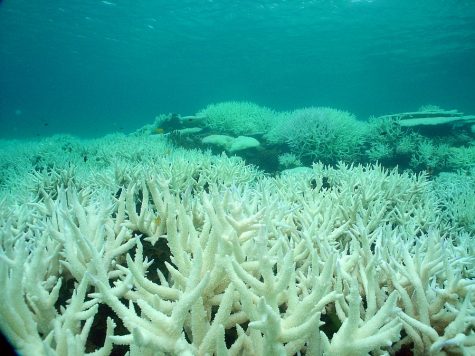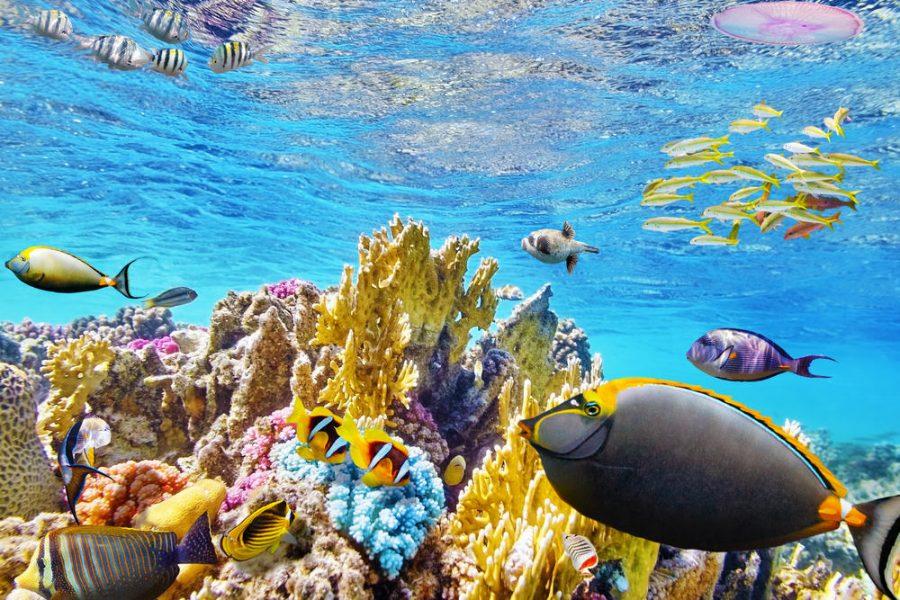Great Barrier Reef: alive, but not for long
Photo Provided by Google Public Use
The Great Barrier Reef, which used to be full of life, is slowly withering away.
October 28, 2016
 Photo Provided by Google Public Use
Photo Provided by Google Public Use
The Great Barrier Reef, is considered to be the largest living organism on Earth and is visible from space, with an area of 344,400 km. It is also home to hundreds of types of coral and endless amounts of fish and other sea creatures. Over time, speculation has risen regarding the Great Barrier Reef and its health. Parts of the reef have either completely died off or are nearing the stages of demise, but as of now the reef is not entirely dead.
The largest issue is coral bleaching, as pictured above. Coral bleaching happens when coral becomes stressed and in turn causes algae to leave. Algae is the provider of nutrients and color for coral. The coral becomes stressed from changes in ocean temperature, runoff, pollution, overexposure to sunlight and extremely low tides. From recent surveys it has been noted that 93 percent of the coral is already affected by coral bleaching. With continued stress on the coral, matters will only get worse.
Humans have had a huge impact on the destruction or extinction of many organisms. The Great Barrier Reef is no exception. Because of the beautiful scenery, the reef has become a popular tourist location, and sadly, more people leads to more garbage. Pollution caused by humans is a big issue regarding the destruction of the reef and it only continues to grow.
In attempt to help one of the natural wonders of the world, the Reef Water Quality Protection Reef Plan was enacted in 2003. This organization and many others are working together to save this amazing reef. Still, without the help and support from people all over the world, the Great Barrier Reef may fulfill the speculation and truly become dead.









